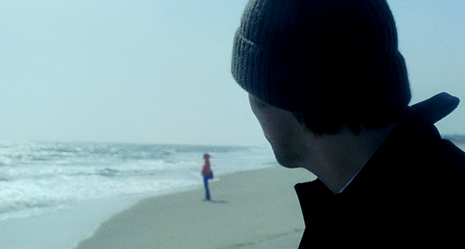VisCourse: Memory and Eternal Sunshine of the Spotless Mind
Sara Popa reveals how Charlie Kaufman’s 2004 film exposes our dichotomous relationship with memory and its essentiality to our existence

“How happy is the blameless vestal’s lot? The world forgetting, by the world forgot.” Eternal Sunshine of the Spotless Mind, the Alexander-Pope-inspired title of a film which shook audiences in 2004, takes a dive into both the joy and chaos of mankind’s relationship with memory. Twelve years and one Academy Award later, director Michel Gondry and screenwriter Charlie Kaufman still compel us with their storyline, as the film flirts with one of humanity’s most dangerous questions: ‘What if?’, exploring the notion that if we could erase some aspect of our past, we could change the course of present and future events.
Waking up on Valentine’s Day, Joel Barish feels as blue as Clementine Kruczynski’s hair, having met her on a beach in Montauk, and claiming to have fallen in love with her at first sight. Witnessing the blossoming and the withering of their relationship, the audience is then hurled into a time-warp of colourful memories, swirled together like loud paint, as Joel decides to erase every trace of Clementine from consciousness and subconsciousness. But can divorcing ourselves from our memories separate us from pain? And what influences do the ghosts of our past have on our present and future selves?
“In this case, memories are confrontational, ghosts from the past holding up a mirror reflection of our true selves.”
Injured in love, the characters of Joel and Clementine view forgetfulness as a one-way ticket to a happier existence, only achievable by the ultimate form of denial: dissociation of memory from self, an amnesia of the soul. But total escape from the past may not be realistic, as prior experiences still hold significant power in forging those of the future. The tension between past, present and future, in relation to memory, is explored equally in Wild Strawberries by Ingmar Bergman. Bergman’s film is another musing on the significance of the relationship between memory and identity, as the egotistical, cold-hearted Professor Borg is haunted by dreams and visions of his past, and his own impending mortality. As his conscience is confronted by former actions, the lines between past and present become increasingly blurred, when new encounters he makes in his waking life mimic those of his old remembrances, from pain at the loss of his first love, to the realisation of his own culpability in the demise of his marriage. In this case, memories are confrontational, ghosts from the past holding up a mirror reflection of our true selves. In realisation of our past mistakes and present flaws, memories facilitate introspection, inspiring transformation in who we are. Memories, as portrayed by Bergman, are inseparable from who we are as individuals, too valuable to be done away with.
In Eternal Sunshine of the Spotless Mind, Joel chases what remains of his memories, attempting to shield Clementine from the fate of the forgotten. Yet even when they both lose their battles, their minds becoming spotless with forgetfulness, their love remains, and their destinies stand. Erasing the past cannot change the present or the future. We witness this with Mary Svevo, the young receptionist to the memory-erasing medic, who falls in love with the same married man twice, despite having abandoned her memories of their past relationship. In these situations, attempts at denial of the past are futile, when the character of the individual remains the same, repeating the mistakes of a bygone era in the present day. A mind may be restored to a blank canvas; however, the result isn’t sunshine and rainbows, but confusion and pain. Doctor Howard Mierzwiak, and perhaps even Pope, were wrong.
Ultimately, Eternal Sunshine of the Spotless Mind disproves what its very title suggests. Memories, both bitter and sweet, are indispensable to the individual because the human mind can never be ‘spotless’. It is complex and chaotic by definition. The duality in the nature of memory, a source both of joy and pain, mimics our own humanity, in all its beauty and all its imperfection. The past is both a friend and an enemy, and memory can either be a pair of rose-tinted glasses, or a loaded gun
 News / Right-wing billionaire Peter Thiel gives ‘antichrist’ lecture in Cambridge6 February 2026
News / Right-wing billionaire Peter Thiel gives ‘antichrist’ lecture in Cambridge6 February 2026 News / Cambridge students uncover possible execution pit9 February 2026
News / Cambridge students uncover possible execution pit9 February 2026 News / Epstein contacted Cambridge academics about research funding6 February 2026
News / Epstein contacted Cambridge academics about research funding6 February 2026 News / Man pleads guility to arson at Catz8 February 2026
News / Man pleads guility to arson at Catz8 February 2026 News / John’s duped into £10m overspend6 February 2026
News / John’s duped into £10m overspend6 February 2026








